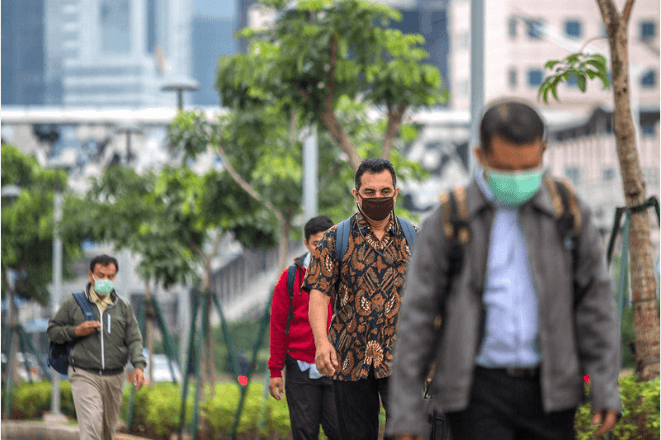
The coronavirus disease (COVID-19) caught governments unaware. While the outbreaks in Southeast Asian countries were not as bad as those in the West, the region was far from being immune to the crisis.
With cases continuing to grow, the economic fallout has also been worsening. In a December report, the Asian Development Bank (ADB) noted economic growth in Southeast Asia continues to falter because of the pandemic. Growth forecast for the region for 2020 was revised down to -4.4% from -3.8% in September, while outlook for 2021 was cut to 5.2% from the 5.5% growth forecast in September, according to a supplement to the Asian Development Outlook (ADO) 2020 Update.
In Southeast Asia and the rest of the world, governments are pinning their hopes the rollout of vaccines would slow the spread of the virus and allow countries to focus on recovery. For the region in particular, stakeholders are pushing for a new normal that is smart, green, digital, and inclusive.
Dato Lim Jock Hoi, secretary general of the Association of Southeast Asian Nations (ASEAN), said to build back better from the pandemic, countries should continue to work together and strengthen cooperation. “As shown by our experience after the Asian financial crisis, regionalism can be a stabilizing factor when shocks arrive. This time, the stability of the region is being challenged again. But I am convinced that ASEAN will be able to withstand these challenges given that the region has grown more resilient, stronger and integrated than before,” he said at an ADB webinar held in November.
He said ASEAN’s unified response to the pandemic allowed countries to contain the spread of the virus, citing the grouping’s setup of a COVID-19 response fund and a regional reserve of medical supplies to boost governments’ capacity to deal with the pandemic.
An ADB book, Future of Regional Cooperation in Asia and the Pacific, released in November also noted the importance of regional cooperation in health, trade, finance, and disaster risk management in supporting a post-pandemic recovery.
The book noted that despite Asia’s impressive growth over the past half a century, the region remains home to almost half of the world’s poor, while large development gaps persist. It noted that growth alone has not been successful in reducing poverty and at times has even exacerbated worrying trends toward greater inequality and environmental degradation that destabilize economies, destroy local communities, and undermine social cohesion.
“Given uncertainties over global economic strength, inclusive and sustainable growth in Asia is imperative for the region’s own prosperity and for a balanced and resilient global economy,” the book said. “Greater regional cooperation holds a key to unlock the potential of Asia’s regional dynamism to achieve more balanced, inclusive, and sustainable growth."
More challenges ahead
With no clear end in sight for the pandemic, Lim also sees more challenges ahead. “The post-pandemic world is likely to be more complex, with greater interdependence among our economies. This means that more not less regional cooperation is needed.”
He stressed the need to embrace technology, sustainability initiatives, and inclusivity in plotting the region’s recovery.
He recognized that digital technologies have provided an important lifeline during the pandemic, particularly in keeping people and markets connected and in spurring productivity. “Digital connectivity is becoming as necessary as sanitation, power, or water for productive activities and people's well-being. There should be a great awareness of digitalization and its critical role in the region’s transformation,” he said.
ASEAN countries should also address issues relating to the shift to technology, urbanization, and connectivity, which have significant implications across countries and sectors. “Given the large number of cross-cutting issues in the region, having a strategic approach is crucial. We need regional solutions that are more focused, targeted, and effective.”
In the past few years, ASEAN has also been working to develop smart cities across the region as a way to address urbanization while leveraging on technology.
Lim said there is also a need to promote sustainability in the region in all dimensions—from transition to clean energy to green infrastructure, disaster management, and sustainable financing. “Evidence suggests that failure to address sustainability issues will have far more adverse impact to the region than a pandemic. Therefore, the time for action is now.”
Indonesia’s initiatives
At the same webinar, Bambang Brodjonegoro, Indonesia’s minister for research and technology and chairman of the National Agency for Research and Innovation, recognized the need for his country to accelerate its digital transformation and in shifting its economy to be more sustainable.
To facilitate Indonesia’s shift to an innovation-based economy, he said the government has agreed to grant up to 300% tax deduction on research and technology expenditures to encourage industry to develop more innovative products.
Brodjonegoro also recognized the need for stronger regional cooperation to sustain recovery. He urged stronger collaboration in the field of science and technology and innovation. “We believe that collaboration is very much needed in this unprecedented times. We hope that cooperation on science, technology, and innovation among ASEAN [countries] in the future will give mutual benefits for all of us.”

